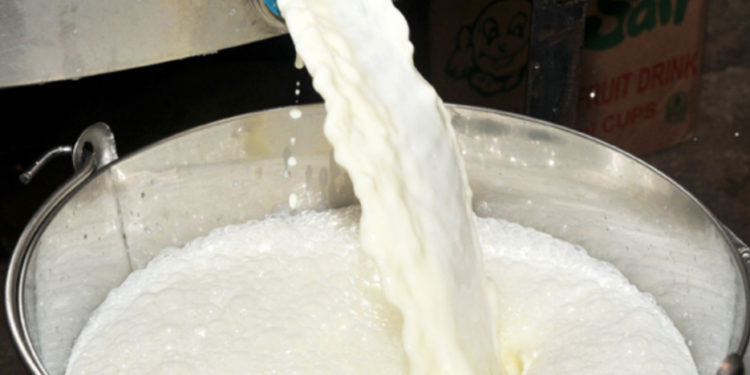Uganda’s revenue from export of dairy products has risen from $131.5m (Shs 480bn) in 2018 to $205m (750bn) in 2020 according to records from the Dairy Development Authority (DDA).
This was revealed by Dr. Michael Kansiime, the DDA Executive Director during a virtual orientation meeting with Hon. Frank Tumwebaze, the new Minister of Agriculture, Animal Industry and Fisheries. DDA is the government agency mandated to develop and regulate the dairy industry and has a core objective to provide proper coordination and efficient implementation of all government policies.
Dr. Kansiime noted that exported dairy products include casein, whey protein powder, UHT milk and milk powder, among others. Exports mainly go to regional markets; UAE, Syria, Japan, Oman, USA, Nepal and Bangladesh. He attributed this to increased compliance of Uganda’s milk and milk products.
Dr. Kansiime noted that the country’s overall value of marketed milk stands at approximately $850 million (Shs 3.1 trillion), which is 80.2% of the total milk produced. He further noted that DDA is working to promote import substitution, increased export earnings, employment creation and improved household incomes. Dairy imports include buttermilk, infant formula, milk powder, assorted ice cream, cheese and dairy machinery/spare parts and are estimated at $6.8m (Shs 25bn).
Dr. Kansiime told the minister that the dairy sector is currently growing at an average rate of 8% per annum mainly due to the strategic interventions of government.
“The sector is one of the leading agricultural commodity export income earner second to coffee and slowly edging its way to be the leading agricultural export earner in the country,” he noted.
Milk production in the country has increased from 2.5 billion litres in 2018 to 2.8 billion litres in 2020, a rise that is attributed to the expansion of milk collection centres across the country.
Currently, there are 483 milk collection centres countrywide with a total installed capacity of 1,938,522 litres
These centres are operated by dairy cooperatives, private individuals, companies, and processors.
According to Dr. Kansiime, DDA is rehabilitating and equipping milk collection centers, especially in Buganda, northern and eastern regions that DDA inherited from the defunct Dairy Corporation.
On the other hand, milk transportation has greatly improved, thanks to the increase in milk tankers. At the moment, there are 329 road milk tankers with capacity of 2.16 million litres are on the road daily. In the same vein, milk processing is one of the fastest growing sub-sectors with 135 licensed companies which are processing with capacity of 2.8 million litres per day.
Dr. Kansiime noted that the percentage of the marketed milk that is processed stands at approx. 34%.
“Products range from powdered milk; ghee, butter, UHT milk and casein/whey. Others include pasteurized milk, yoghurt, cream, ice cream, fermented milk and cheese, to mention but a few,” he said. On his part, Hon. Tumwebaze encouraged the DDA technical team to push for the industrialization of the subsector in order to boost dairy processing to 2.5 billion litres per day within the next three years.










